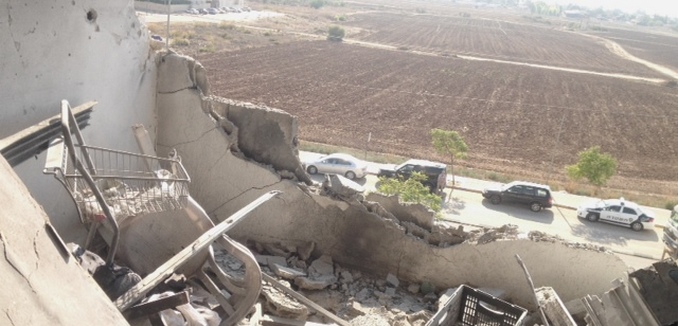A statement made Saturday by Hamas official Osama Hamdan said that the terrorist group would accept no ceasefire in its attacks on Israeli civilians unless Israel ended its blockade of Gaza.
Hamdan’s remarks were reported on the Hamas website Al Qassam:
Head of Hamas’s foreign relations Osama Hamdan said that his movement will not accept any ceasefire in light of the continued siege on Gaza.
He told al-Resalah Net in an interview published on Saturday that the Israeli siege on Gaza is an ongoing aggression that must be stopped.
Israel’s blockade of the hostile terrorist government in Gaza is not aggression but is legal according to international law as documented by Prof. Ruth Lapidoth.
In order to be legal, a blockade has to be declared and announced, effective, non-discriminatory, and has to permit the passage of humanitarian assistance to the civilian population. In addition, the San Remo Manual of 1994 includes two conditions: first, the state which applies the blockade may decide where and when and through which port the assistance should reach the coast. In addition, the state may require that a neutral organization on the coast should verify who is the recipient of the assistance. In Gaza, for instance, does it reach the civilians or Hamas?
Israel’s has complied with the legal requirements set out in law and in 2014 to date (.pdf) has allowed over 20,000 truckloads carrying over 500,000 tons of humanitarian aid into Gaza.
The last sentence of Hamdan’s interview calls on the Palestinian Authority to help end the blockade.
Hamdan called on the PA to work on implementing what have been agreed upon in Cairo namely lifting the siege immediately after formation of the consensus government.
From the start, the announced unity government between Fatah and Hamas raised questions if the agreement “provided the group [Hamas] with a lifeline.” The unity agreement allowed Hamas to keep its arsenal allowing it to follow the “Hezbollah model” and the freedom to operate militarily against Israel with no constraints of a governing authority. The New York Times and Justice Minister Tzippli Livni among others expressed their skepticism that the deal would advance the cause of peace. Analyst David Pollock of the Washington Institute for Near East Policy argued that the agreement emboldened Hamas.
Since Operation Brother’s Keeper began in the middle of June, nearly 200 rockets and missiles have been fired into Israel. The onslaught threatens half a million Israelis living in the south.
Hamas has an arsenal of 10,000 rockets, one of which, the M75, can reach Tel Aviv.
[Photo: The Israel Project / WikiCommons ]




